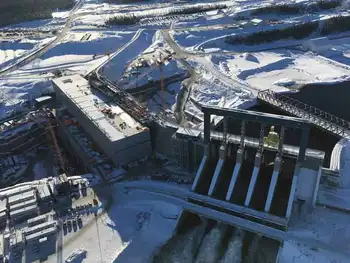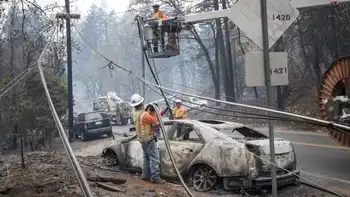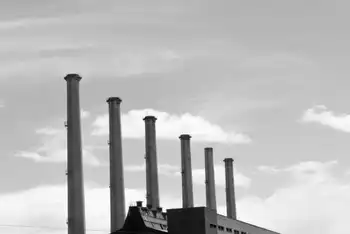Britain must set deadline to close dirty power plants
By Reuters
Arc Flash Training CSA Z462 - Electrical Safety Essentials
Our customized live online or in‑person group training can be delivered to your staff at your location.

- Live Online
- 6 hours Instructor-led
- Group Training Available
The Environmental Audit Committee also warned against the government allowing coal-fired power plants to be built that were "CCS ready" - able to be fitted with carbon capture and storage technology once it is commercially proven and available.
"Carbon capture and storage has undoubted potential, but there is a real question about when it will become technologically and, equally importantly, commercially viable," said committee chairman Tim Yeo.
"We cannot afford to develop new coal-fired power stations when we have no guarantee about when they will be fitted with CCS, if at all," he added.
Carbon capture and storage is the holy grail in the battle against global warming because in grabbing emissions of climate warming carbon gases before they reach the atmosphere and burying them deep underground it allows business as usual.
Because of a combination of age and European emission laws, Britain will be forced to close up to one-third of its power plants within the next 15 years.
It wants new nuclear plants but also knows that it will have to allow construction of fossil fuel plants - including coal in all likelihood.
"It is absolutely crucial for the government to take a strong line on this. It must tell the industry that carbon capture and storage will be required, and that coal-fired power stations will not be permitted to operate unabated," Yeo said.
"By setting a deadline for power stations to meet a certain emissions standard, the development and deployment of CCS will be given a much needed push in the right direction, and the environmental damage caused by these stations will be minimized."
Experts agree that with about 300 years worth of reserves world-wide coal will continue to be burned for decades to come.
China is opening a coal-fired power station a week to feed its booming economy. It also has ample quantities of underground geological structures like saline aquifers suitable for safely storing captured carbon.
The European Union wants 12 full-sized CCS pilot projects running by 2015, and the technology commercially viable by 2020.
But to date Britain is the only country actively pursuing the technology with a competition for companies to come up with the whole process from smokestack to burial.
The government has also said it will consider allowing new coal plants to be built that are CCS ready, although it admits there is no clear agreement on exactly what the term means.
"The government must demonstrate a clearer and more urgent strategy in order to speed the development of CCS," Yeo said.
"In addition to the environmental benefits, the timely development of a range of CCS technologies would also give the UK a clear competitive advantage on the global stage."











